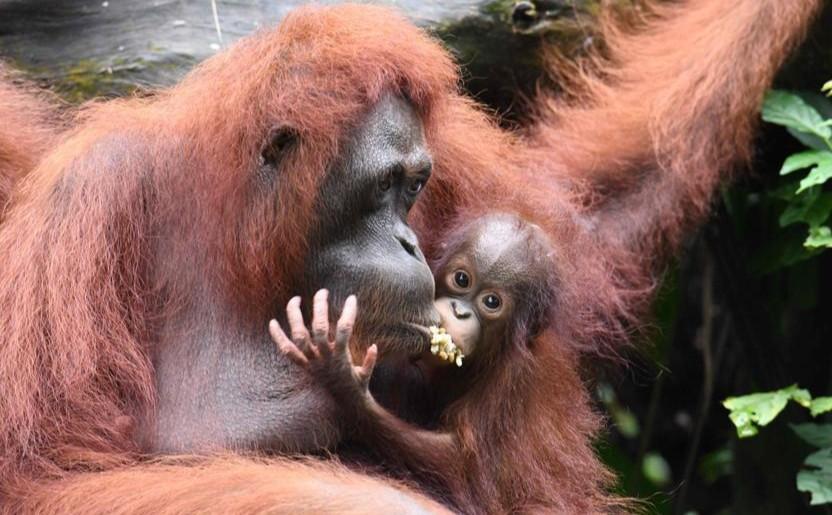
Zoo Life Sparks Greater Curiosity, Creativity in Orangutans: Study
In a fascinating discovery, a new study has revealed that life in captivity has a profound impact on the behavior and cognitive abilities of Sumatran orangutans. The researchers observed 51 orangutans in zoos, ranging in age from 6 months to 76 years, and found that they exhibited greater curiosity and creativity compared to their wild counterparts.
The study, published in the journal Animal Behaviour, suggests that the unique environment of zoos, with its variety of enrichment items and puzzles, has altered the way orangutans interact with their surroundings. While wild orangutans primarily focus on examining natural materials such as leaves, their zoo-dwelling counterparts are more likely to engage with plastic toys, puzzles, and other man-made objects designed to stimulate their problem-solving skills.
The researchers from the University of Zurich and the University of Cambridge used a combination of observational and experimental methods to investigate the behavior of the orangutans. They recorded the animals’ interactions with different objects, including toys, puzzles, and food items, and analyzed their problem-solving abilities and creativity.
The study found that the orangutans in zoos were more likely to approach and explore novel objects, and were more creative in their problem-solving strategies. For example, they were able to use tools such as sticks to retrieve food rewards from puzzles, and showed a greater willingness to experiment with different solutions.
In contrast, wild orangutans were found to be more focused on their natural environment, with a greater emphasis on foraging and socializing. While they also exhibited problem-solving abilities, their creativity was less evident, and they were less likely to engage with novel objects.
The researchers suggest that the differences in behavior between wild and zoo orangutans may be due to the unique environmental pressures and challenges presented by captivity. In zoos, orangutans are provided with a variety of enrichment items and activities designed to stimulate their cognitive abilities and encourage natural behaviors. This can lead to a greater sense of curiosity and creativity, as they are forced to adapt to and learn from their new environment.
“Our study highlights the importance of considering the cognitive and behavioral changes that can occur when animals are kept in captivity,” said Dr. Claudia Wascher, a researcher at the University of Zurich and co-author of the study. “By understanding how animals adapt to their environment, we can better design and enrich their living spaces to promote their overall well-being.”
The findings of the study have important implications for the care and management of orangutans in zoos. By providing a variety of enrichment items and activities, zookeepers can promote the cognitive and behavioral development of these intelligent and fascinating animals.
The study also highlights the importance of conservation efforts aimed at protecting the natural habitats of orangutans. As their wild populations continue to decline due to habitat loss and fragmentation, conservationists must work to preserve and restore their natural environments, and provide a safe haven for these incredible creatures.
In conclusion, the study provides a fascinating insight into the behavior and cognitive abilities of orangutans in captivity. By highlighting the unique adaptations and creative problem-solving strategies of these animals, the researchers have demonstrated the importance of considering the cognitive and behavioral changes that can occur when animals are kept in captivity.






